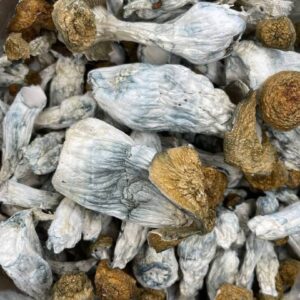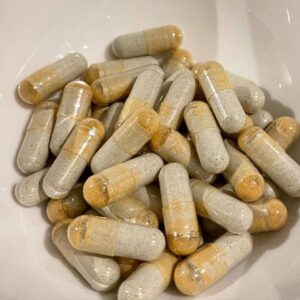DMT
What is DMT
DMT (Dimethyltryptamine) is a strong psychedelic drug, which means it can affect all the senses, altering a person’s thinking, sense of time and emotions. Psychedelics can cause a person to hallucinate, seeing or hearing things that do not exist or are distorted.
DMT is structurally similar to psilocybin (magic mushrooms) and is known to produce short acting and intense visual hallucinations.
What does DMT look like?
DMT is found in a variety of plants and animals, and is the psychoactive ingredient in the drug ayahuasca.3 In ayahuasca, a plant containing DMT is boiled together with a plant containing a monoamine oxidase inhibitor (MAOI) such as harmaline, and the mixture is drunk. Buy DMT online.
When produced synthetically DMT is a white crystalline powder. Quality DMT online.
Other names
Dimitri, Deems The spirit molecule, Changa, Fantasia, the glory, the sacrament.
How is DMT used?
DMT can be:
- vaporised or smoked in a pipe
- drunk as part of an ayahuasca brew
- snorted
- injected.
Effects of DMT
Use of any drug can have risks. It’s important to be careful when taking any type of drug.
Psychedelics affect everyone differently, based on:
- size, weight and health
- whether the person is used to taking it
- whether other drugs are taken around the same time
- the amount taken
- the strength of the drug (varies from batch to batch)
- environment (where the drug is taken).
DMT is most commonly smoked in Australia, with effects commencing almost straight away and finishing after around 30 minutes.5 Effects may include:
- a ‘rush’
- feeling happy and excited
- changes in mood
- increased sensitivity to bodily sensations (body aches, tingles, feelings of pain and pleasure, warmth and fatigue)
- increased heart rate and blood pressure
- small pupils
- anxiety and confusion
- intense visual hallucinations
- dissociation.
Impact of mood and environment
Drugs that affect a person’s mental state (psychoactive drugs) can also have varied effects depending on a person’s mood (often called the ‘set’) or the environment they are in (the ‘setting’):
- Set: a person’s state of mind, previous encounters with psychedelic drugs, and expectations of what’s going to happen. For example, feelings of stress or anxiety before using DMT may result in an unpleasant experience (bad trip).
- Setting: the environment in which someone consumes a psychedelic drug – whether it’s known and familiar, who they’re with, if they’re indoors or outdoors, the type of music and light. For example, using DMT in a calm, quiet and relaxed environment can lead to, or contribute to, a pleasant experience but being in a noisy, crowded place may result in a negative experience.
- Being in a good state of mind, with trusted friends and a safe environment before taking DMT reduces the risk of having a ‘bad’ trip.
Overdose
If someone takes a large amount, the negative effects of DMT are more likely. Call an ambulance straight away if you or someone else has any of these symptoms:
- vomiting
- inability to move
- intense anxiety and confusion
- overwhelming fear and paranoia
- psychosis
- increased risk-taking
Ambulance officers do not need to involve the police.
Bad trips
Some people may have negative experiences taking any psychedelics, or experiences they find challenging. This can happen even if a person takes a moderate dose. During a bad trip, you may experience frightening or confronting hallucinations, and feelings of anxiety, confusion, fear and paranoia.
Coming down
There is little data on the comedown effects of DMT, but anecdotal user reports suggest that you may experience:
- feeling a bit confused and unable to think clearly
- trouble concentrating
- feeling anxious or panicked
- feeling disconnected with your body
- racing thoughts or realisations
- trouble sleeping.10,11
Long-term effects
The most common long-term effect of psychedelic use is ‘flashbacks’. Flashbacks are a re-experience of the drug and can occur days, weeks, months and even years later after using.
Flashbacks can be triggered by the use of other drugs or by stress, fatigue or physical exercise. The flashback experience can range from being pleasant to causing severe feelings of anxiety. They are usually visual and last for a minute or two.
There have been no reports of toxic effects from the long-term use of DMT, aside from concerns regarding the cardiovascular impact of increased heart rate and blood pressure.
DMT and mental health
For people with a history of mental health concerns, or a current condition, DMT can worsen symptoms in some cases.
Tolerance and dependence
Reports suggest that DMT does not produce any tolerance, and there is low potential for dependence to occur.
Mixing DMT with other drugs
Mixing DMT with other drugs can have unpredictable effects and increase the risk of harm.
- DMT and Tramadol: may cause seizures.
- DMT and Cannabis: risk of anxiety, paranoia, panic, psychosis.
- DMT and ice/speed/cocaine: can increase risk of anxiety & negative thought loops, leading to a negative experience.









Reviews
There are no reviews yet.